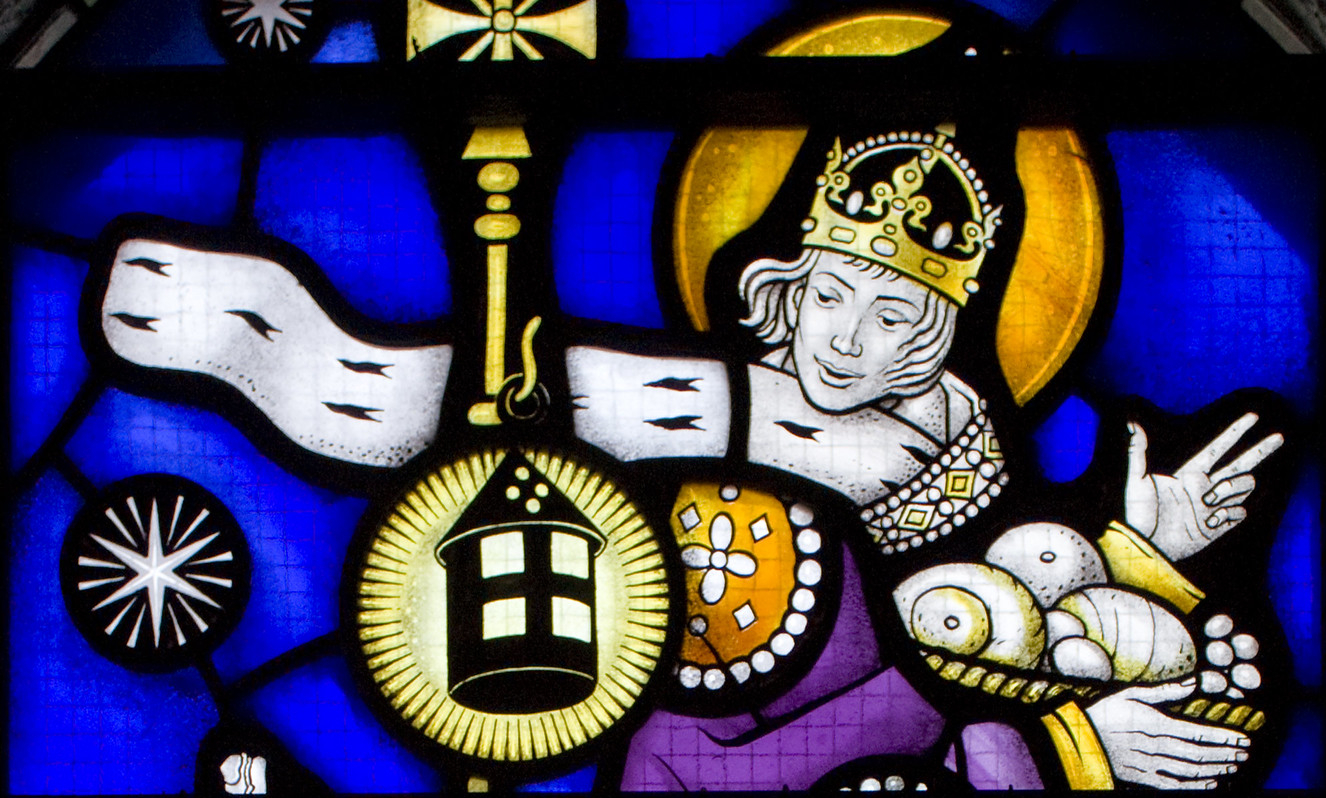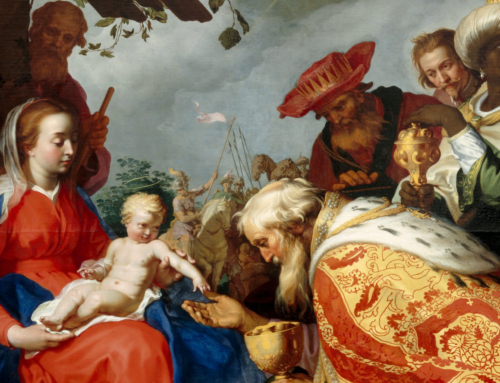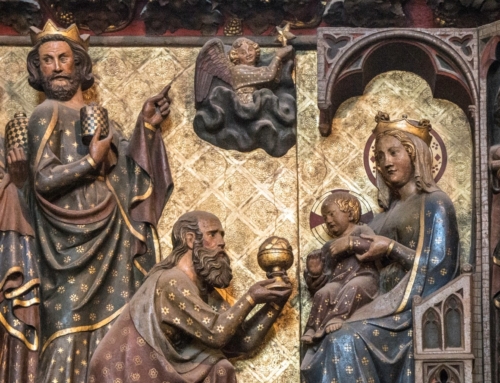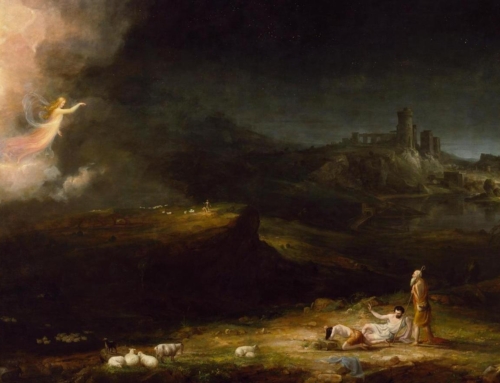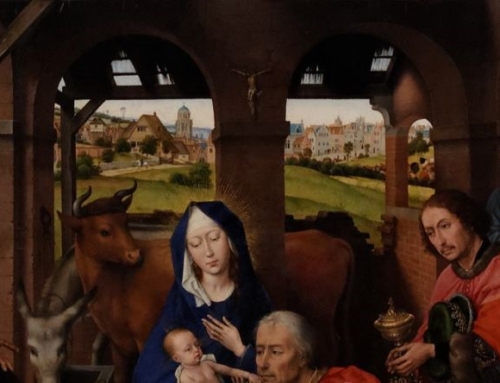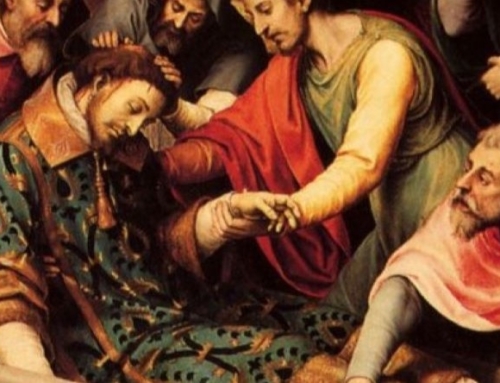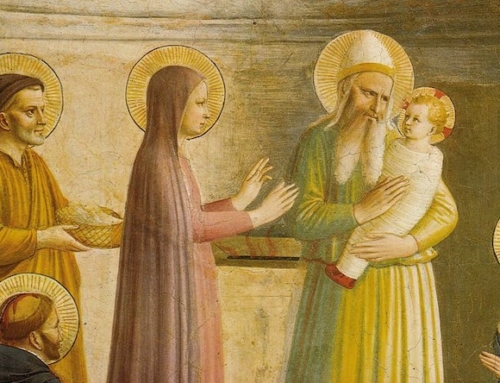The Sights and Sounds of Christmas:
Good King Wenceslaus by John Mason Neale, c. 1853
Today is known as Boxing Day in England, where the wealthy would traditionally give gifts to their servants and to the less fortunate. Interestingly enough, there is a link between this secular commemoration, today’s liturgical feast of Saint Stephen, and the message of the mid-nineteenth century English carol, Good King Wenceslaus. While both St. Stephen and Wenceslaus wore the martyr’s crown, they were also known for their service to the poor, which they undertook for the sake of Christ. Their mutual witness shows us how the mystery of Christmas can transform us into loving disciples of the newborn Savior.
In the Acts of the Apostles, we find Stephen, a young man “full of grace and power” who “did great wonders and signs among the people” (Acts 6:8). As one of the first deacons, he was committed to serving the poor and widows, so that the Apostles could freely fulfill their preaching mission. He defended the Faith against those who were trying to silence the followers of Christ, eventually succumbing to death by stoning. We celebrate him as the first martyr on the day after Christmas, because he reminds us of the ultimate mission of the newborn savior, who came to earth in order to die for our sins.
With St. Stephen as his example, it was quite fitting that “Good King Wenceslaus looked out on the feast of Stephen.” Who was this good “King Wenceslaus”? Wenceslaus I—more precisely, the Duke of Bohemia—was born around 907. His path to holiness was inspired by his grandmother, Saint Ludmila, who was one of the first to be baptized in Bohemia. He succeeded his father as duke when he was only a teenager, and was known for his devotion and virtue. Like Stephen, Wenceslaus assisted the poor with alms as a young man. In 935, he was killed by his brother, who resented Wenceslaus’ allegiance to both the Church and the German king. Saint Wenceslaus has been venerated as a martyr ever since his death.
It is the charity of St. Wenceslaus that is the major theme of the carol that bears his name, but we must carefully read each verse in order to unlock this message. We find the first clue at the end of verse 1: “When a poor man came in sight gath’ring winter fuel.” In verse 3, Wenceslaus and his page feed this poor man and provide him with firewood for the wintry night. By verse 4, the page is spent, unable to go further due to the cold. Wenceslaus commands him to follow in his steps, as “Heat was in the very sod which the saint had printed.” The presence of the saint radiates the love of Christ in the midst of the winter’s cold. It was Christ whom Wenceslaus proclaimed, for his coming into the world scatters the darkness and warms the hardened hearts of sinners. All of us, regardless of status, must serve Christ in the poor and helpless, for in doing so, we proclaim the good news of salvation with the hope of eternal life. The final words of the carol teach such a lesson:
“Therefore, Christian men, be sure,
wealth or rank possessing,
Ye who now will bless the poor,
Shall yourselves find blessing.”
Saint Wenceslaus lived this lesson eminently, humbling himself from his throne to help the poor and downtrodden.
Christmastime can prompt us to help those who are needy, yet such sentiments for good deeds should not be a mere formality or come by way of social obligation. Rather, they must be rooted in a love for the infant lying in the manger. Christ’s lowly birth shows us our own poverty and weakness, as he descended among us to raise us out of the poverty of sin. Saints Stephen and Wenceslaus are venerated as martyrs, yet their witness includes a love for Christ in the poor, which preceded their ultimate sacrifice for him. Their example inspires us to bring the love of the newborn Christ to all those we encounter, both at Christmas and throughout the whole year.
✠
Photo by Fr. Lawrence Lew, O.P. (used with permission)

